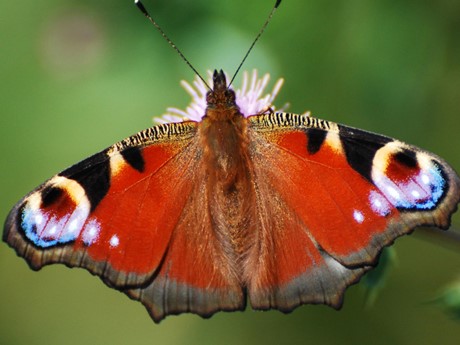Important phenologists
Every single Nature’s Calendar record adds vital information to our database, but the contribution of some phenologists has been especially important.
Robert Marsham
Robert Marsham is considered the founding father of phenology in the UK. He began recording spring species and events back in 1736 on his family estate near Norwich, Norfolk. He called them his Indications of Spring.
Marsham continued to note down significant dates for the next 62 years recording some 27 natural events for more than 20 animals and plants. These included tree leafing times and the arrival of migrant birds.
Marsham's records did not stop with his death in 1797. Successive generations kept up this information gathering until 1958 when sadly they stopped, just at the point when the cumulative impact of burning fossil fuels and forest destruction began to have an accelerating effect on the world's climate.

Robert Marsham (Alex Sparks/WTML)

Jean Combes OBE (Paul Hetherington/WTML)
Jean Combes
Jean Combes started her phenological records in 1947. They provide invaluable information about the post-war period when climate change was beginning to become a major environmental issue.
The oak budburst dates collected by Jean have become famous. They have been used by scientists, government departments and research organisations interested in the impact of a changing climate on trees and wildlife. Dates from 1950 to 2024 are shown in the graph below. Budburst dates vary hugely from year to year but the general trend is towards budburst happening weeks earlier than it used to.
Jean Combes was responsible for what is believed to be the longest recording of phenological data by a single person anywhere in the world and was awarded an OBE in the New Year’s Honours list in 2009 for her services to phenology. Jean recorded the changing seasons for more than 70 years until her death in 2023, aged 96. She has passed the phenologist baton onto a friend of hers, Janice Fisher, who will continue to record budburst dates for her trees, starting with the year 2024.


Oak budburst (Judith Garforth/WTML)
